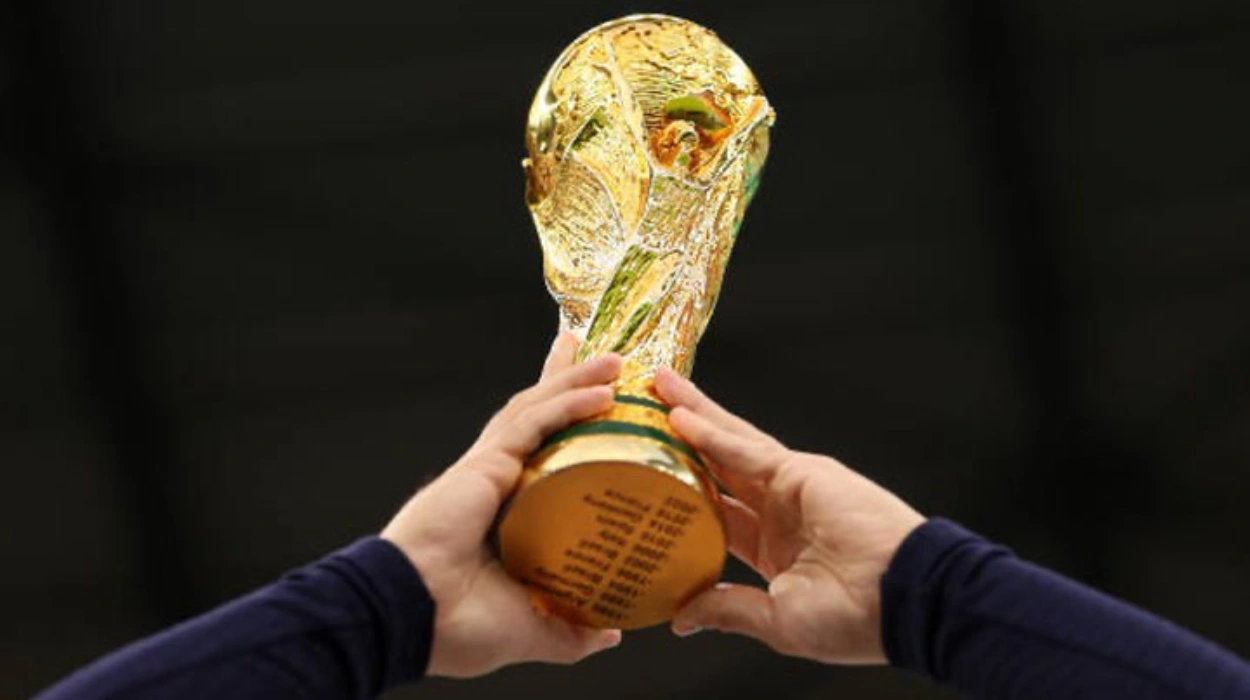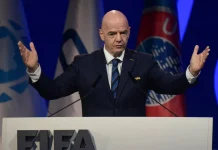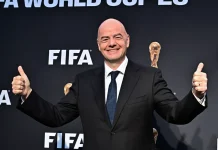Marked by controversies over human rights abuses, conflicts, and political fallout, Saudi Arabia’s international relations raise full-scale issues around the suitability to host the FIFA World Cup 2034. In 2022, Saudi Arabia executed 196 individuals, reflecting a sharp increase in executions. One of the most striking events occurred on March 12, when the country conducted its largest mass execution in decades, with 81 men put to death in a single day.
While Saudi Arabia has invested heavily in sports to boost its global image, its broader political and diplomatic behavior shows a mismatch between the values that make up international sporting activities and reality. Furthermore, the World Cup, which promotes inclusivity, fair play, and unity, may face huge challenges if it is hosted by a country that fails to live up to the image of such a big event.
Violations of human rights and repression
One of the biggest concerns surrounding Saudi Arabia’s global popularity stems from its longstanding human rights abuses. The US has been repeatedly criticized by world agencies such as Amnesty International and Human Rights Watch for violations and restrictions on freedom of speech, press, and assembly, as well as its treatment of girls and minorities. Since Crown Prince Mohammed bin Salman rose to power in 2017, over 60 dissidents have been arrested, with many human rights defenders imprisoned for their activism. This crackdown highlights the increasing repression faced by those advocating for political reform and civil rights in Saudi Arabia.
The Khashoggi Case and Media Freedom
The brutal assassination of journalist Jamal Khashoggi, a vocal critic of Saudi Crown Prince Mohammed bin Salman (MBS), at the Saudi consulate in Istanbul is one of the most damning indictments of Saudi Arabia’s foreign behavior. The global reaction was immediate, but the state’s ties to key international venues, especially the US, muted it before the intense diplomatic results.
Jamal Khashoggi entered the Saudi consulate to obtain documents for his upcoming marriage but was never seen leaving. Reports later revealed that he was tortured, murdered, and dismembered by a team of 15 Saudi agents, who had been sent specifically to carry out the operation. This lack of media freedom raises the issue of how overseas journalists, broadcasters, and media covering the FIFA World Cup might be dealt with. Should reporters have the freedom to document the political or social issues surrounding the event, or face censorship or persecution for basic insurance?
Regional Conflicts and Engagement in Yemen
Saudi Arabia’s involvement in regional conflicts, particularly in Yemen, casts a widening shadow over its international relations. Since 2015, Saudi Arabia has been leading a coalition in Yemen’s civil struggle, aiding the Yemeni authorities towards the Houthi insurgency. The conflict in Yemen began in September 2014 when Houthi rebels, a Shiite group with ties to Iran, seized control of the capital, Sanaa. Their uprising was fueled in part by growing political dissatisfaction and frustration over rising fuel prices, exacerbated by the aftermath of the Arab Spring.
The United Nations has described the scenario in Yemen as the worst humanitarian disaster in the arena, with hundreds of thousands of people displaced and thousands of civilians killed. Saudi Arabia’s move has been criticized as war crimes by rights groups.
Relations with Iran and Sectarian Tensions
Saudi Arabia’s strained courtship with Iran, marked by a long period of proxy conflict and sectarian competition, presents an extremely challenging situation for its suitability as a World Cup host. The Sunni-Shia divide in the locality, fueled by the exploitation of Saudi Arabia and Iran’s competing aims for dominance, has created instability throughout the Middle East.
The war between the two nations has manifested itself in proxy wars in international locations such as Syria, Iraq, and Yemen, contributing to local instability. These sectarian tensions raise concerns about the protection and inclusiveness of the FIFA World Cup hosted in Saudi Arabia. Given the political and religious differences within the locale, web hosting a match that celebrates global harmony in a country at the heart of one of the world’s most volatile conflicts can be incredibly contentious.
Women’s rights and gender equality
Despite current reforms, Saudi Arabia still lags behind much of the world when it comes to gender equality. Women have only recently gained the right to drive and can still face significant restrictions on their movements, dress, and behavior. While the government has made incremental adjustments, many of the reforms are tightly controlled, and women’s rights activists who push for broader freedoms face imprisonment or harassment. FIFA is increasingly promoting gender equality and inclusivity in football. Hosting a rustic-style World Cup, where women’s rights are suppressed will not give a good image.
Political Influence and Sportswashing
Saudi Arabia has been accused of using sport as a tool for “sportswashing” – an attempt to use high-profile activities to boost its international recognition and divert attention away from its controversial political actions. The Kingdom has invested billions in sports, web hosting events such as boxing matches, and Formula 1 races, or even purchasing over-the-top football golf equipment through its sovereign wealth fund.
Critics say Saudi Arabia uses sports as a way to mask its appalling human rights record and authoritarian rule. Hosting the World Cup will be the crowning jewel of this method, allowing the estate to become a contemporary, innovative us at the same time that its fundamental problems are still unresolved.
Sportswashing threatens to undermine the credibility of international sports organizations such as FIFA, which could be seen as complicit in Saudi Arabia’s attempts to whitewash its image. Awarding the World Cup to Saudi Arabia could signal that political interests and monetary boons are being prioritized over the values of human rights, transparency, and fairness that FIFA claims to uphold.
Conclusion
Saudi Arabia has positioned itself as a contender to host the 2034 FIFA World Cup, with its global family members and domestic politics making it the wrong preference. The violation of human rights, involvement in local conflicts, tensions with key acquaintances, and the attempt to use sport as a tool for political rehabilitation raises serious ethical questions. Hosting the World Cup in a kingdom with this type of tainted global recognition risks damaging the integrity of the game and undermining its values of inclusivity, fairness, and global unity.













